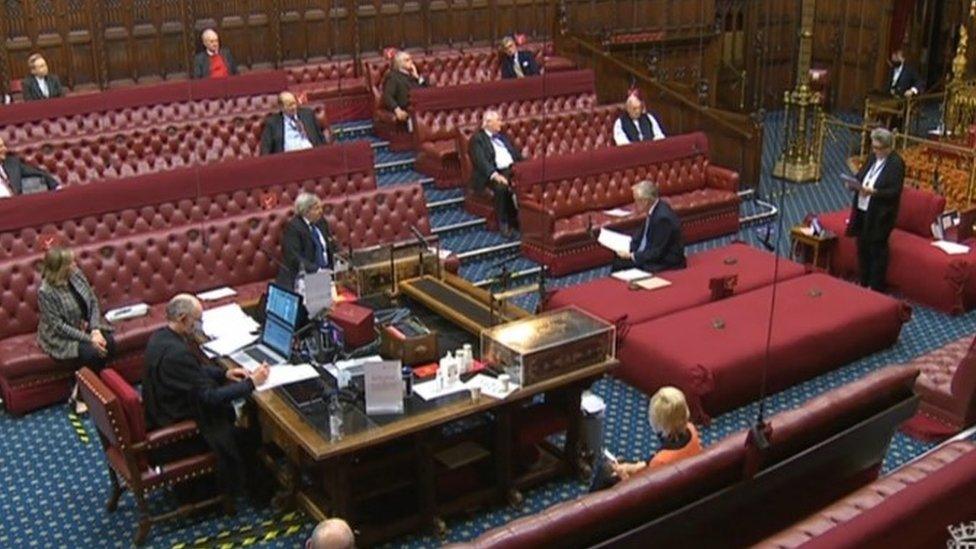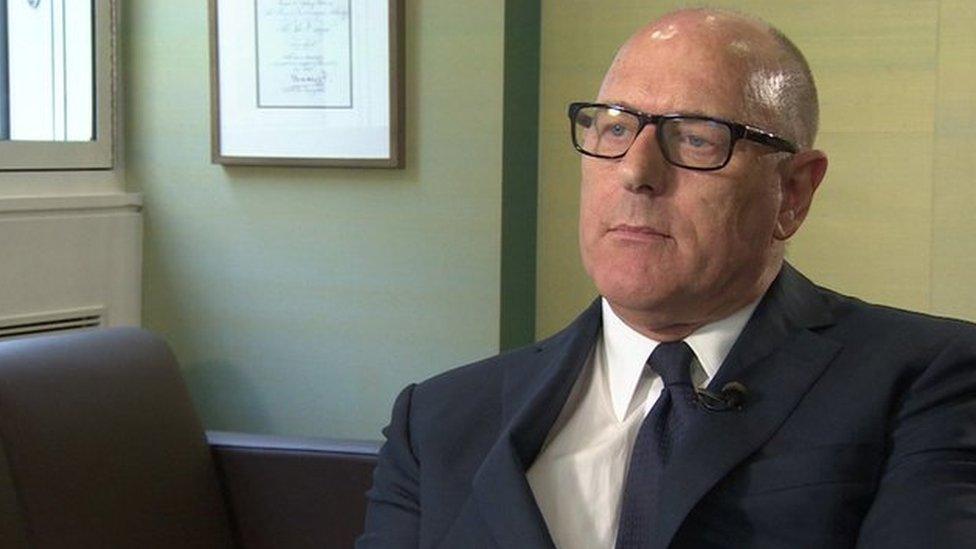Call to give House of Lords veto over new members rejected
- Published

Ministers have rejected calls for the House of Lords to have an effective veto over new members, saying it would set a "dangerous" precedent.
It follows a row over Boris Johnson's nomination of businessman Peter Cruddas for a peerage last month, despite his rejection by the honours watchdog.
This prompted demands for the advisory body to be given stronger powers.
Its ex-head Lord Jay said the system had "fallen its disrepute" and the body must be controlled by the Lords.
The Lords Appointments Commission, which was set up in 2000, provides advice but appointments to the unelected chamber are ultimately a decision for the prime minister.
The Commission did not support ennobling Mr Cruddas, who quit as Tory co-treasurer in 2012 following cash-for-access allegations. He later won a libel case against a newspaper over its claims.
Mr Johnson rejected the commission's recommendation, becoming the first PM to ignore its advice on a nomination in its 20-year history.
'Advice discarded'
This led to calls, including from the current Speaker of the House of Lords Lord Fowler, for the body's remit and powers to be reviewed.
During an question on the issue in the Lords, Lord Jay, a former diplomat who chaired the body between 2008 and 2013, suggested the current system for vetting prospective peers was no longer fit for purpose.

Peter Cruddas won a libel case against the Sunday Times in 2013
"The House of Lords Commission's advice was accepted by all prime ministers from Tony Blair to Theresa May," he said. "If its advice is discarded, the system pretty quickly falls into disrepute."
He suggested the commission's chair and members should be chosen in future by the House, rather than by the PM, and that the body should be "seen as a creature of this House" - with an effective veto over appointments.
'Dangerous place'
But, responding for the government, Lord True defended the current system, saying the PM should be free to make the final decision after giving "close attention" to the body's advice.
"I think it is a dangerous place for this House to go to assert the right to decide who should or should not be its own members," he said. "I think that is constitutionally a very strange place for an unelected chamber to go."
The appointment of Mr Cruddas, who gave £50,000 to Boris Johnson's Tory leadership campaign in 2019 and has donated £3m to the Conservatives since 2007, has led to accusations of cronyism from Labour.
Shadow Lords leader Baroness Smith told peers it had "damaged the reputation" of the House; while ex-Lords Speaker Baroness Hayman said "public confidence" needed to be rebuilt in the appointments process.
But Lord True said the powers of patronage ultimately lay with the prime minister as the Queen's chief adviser under the Royal Prerogative and he was entitled to "refresh" the House of Lords.
And former Conservative cabinet minister Lord McLoughlin argued that nominations made by past Labour prime ministers had also been controversial and the current process struck the right balance.